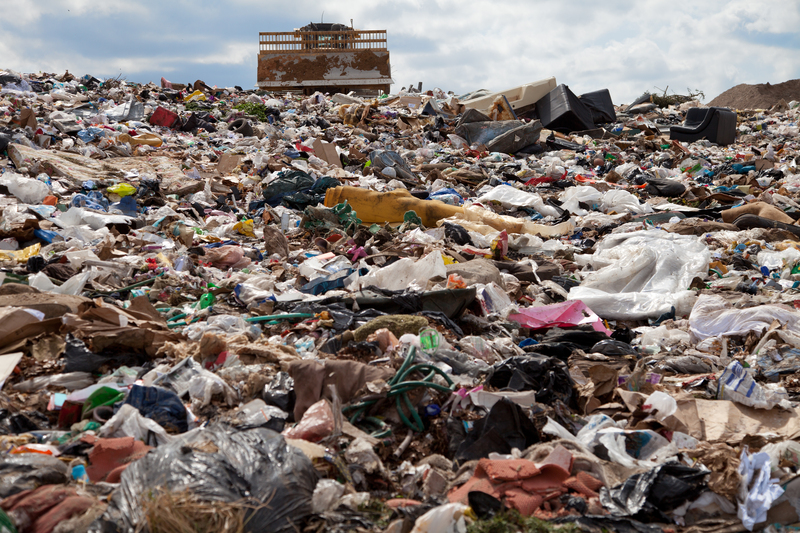The Significance of Proper Waste Management
Posted on 02/05/2025
Proper waste management plays an essential role in maintaining the health of our environment and communities. The growing industrialization and urbanization have significantly increased waste production worldwide. Unfortunately, this waste impacts not just the environment but also public health. This article explores the various aspects of proper waste management, its significance, tips for effective waste management, and provides an overview of the pros and cons.
Understanding Waste Management
Waste management refers to the activities and actions required to manage waste from its inception to its final disposal. This includes the collection, transportation, treatment, and disposal of waste, together with monitoring and regulation. It also includes the legal and regulatory framework that relates to waste management encompassing guidance on recycling etc.

The Environmental Impacts of Poor Waste Management
Poor waste management can severely affect the environment. Improper waste disposal methods, such as open burning and landfilling, release harmful pollutants into the air, water, and soil. These pollutants can cause serious health issues for humans and wildlife alike. Landfills, for instance, produce methane--a potent greenhouse gas that contributes significantly to climate change. Toxic substances from e-waste and plastic can leach into the ground, contaminating drinking water sources.
Health Implications
The health implications of improper waste management cannot be overstated. Bacteria, insects, and vermin thrive in waste, leading to the spread of diseases like cholera, dysentery, and dengue fever. Communities near poorly managed landfill sites are particularly at risk. Respiratory issues are commonly observed due to the pollution caused by burning waste materials. Proper waste management is essential in preventing these health issues and ensuring the well-being of populations.
Economic Benefits
Proper waste management can be a significant driver of economic development. Recycling and composting can produce resources and energy that can be reused in various industries, thereby creating job opportunities. Additionally, reducing waste means reducing the costs associated with its disposal and the environmental clean-up often necessitated by poor waste management practices. By converting waste into energy, we can also decrease dependency on non-renewable resources.
Social and Community Benefits
Effective waste management plays a critical role in social and community well-being. Cleaner streets and public spaces contribute to better quality of life. Waste management initiatives, such as local recycling schemes, can also foster community spirit and encourage civic engagement. Educating communities about waste segregation and recycling can lead to more responsible behavior towards consumption and waste disposal.
Pros and Cons of Proper Waste Management
Pros
- Reduces pollution and protects the environment.
- Prevents health hazards and diseases.
- Boosts economic growth through recycling and waste-to-energy initiatives.
- Enhances community and social well-being.
- Saves energy and conserves natural resources.
Cons
- High initial cost for setting up proper waste management systems.
- Need for public education and participation in waste segregation.
- Potential short-term inconvenience during the transition to improved systems.
- Challenges in managing hazardous and e-waste effectively.
Tips for Effective Waste Management
- Segregate waste at the source: Separate recyclables, organic waste, and hazardous waste to facilitate easier and more effective waste treatment.
- Reduce, reuse, recycle: Follow the 3Rs principle to minimize waste generation.
- Compost organic waste: Use compost bins for kitchen scraps and garden waste to create nutrient-rich soil.
- Avoid single-use plastics: Opt for reusable bags, bottles, and containers to cut down on plastic waste.
- Stay informed: Keep updated with local waste management regulations and recycling guidelines.
- Support community initiatives: Participate in local clean-up drives and recycling programs.

Takeaways
- Proper waste management is crucial for the health of both the environment and the community.
- Effective waste management can lead to economic benefits, better health outcomes, and social well-being.
- It involves reducing, recycling, and reusing waste materials and necessitates public participation.
- Although initial costs may be high, the long-term benefits far outweigh the cons.
Conclusion
Proper waste management is an imperative step towards a sustainable future. It offers numerous benefits, including environmental protection, improved public health, economic growth, and enhanced community life. While there are challenges, the advantages make it a worthwhile investment. By adopting best practices and encouraging community engagement, we can significantly reduce the negative impacts of waste and make our world cleaner and healthier.
By focusing on effective waste management, we can contribute to a more sustainable society. It is a collective responsibility that requires the participation of every individual, community, and organization. Let's do our part in ensuring a cleaner, greener future for generations to come.
Latest Posts
Essential Tips for Managing Organic Waste






